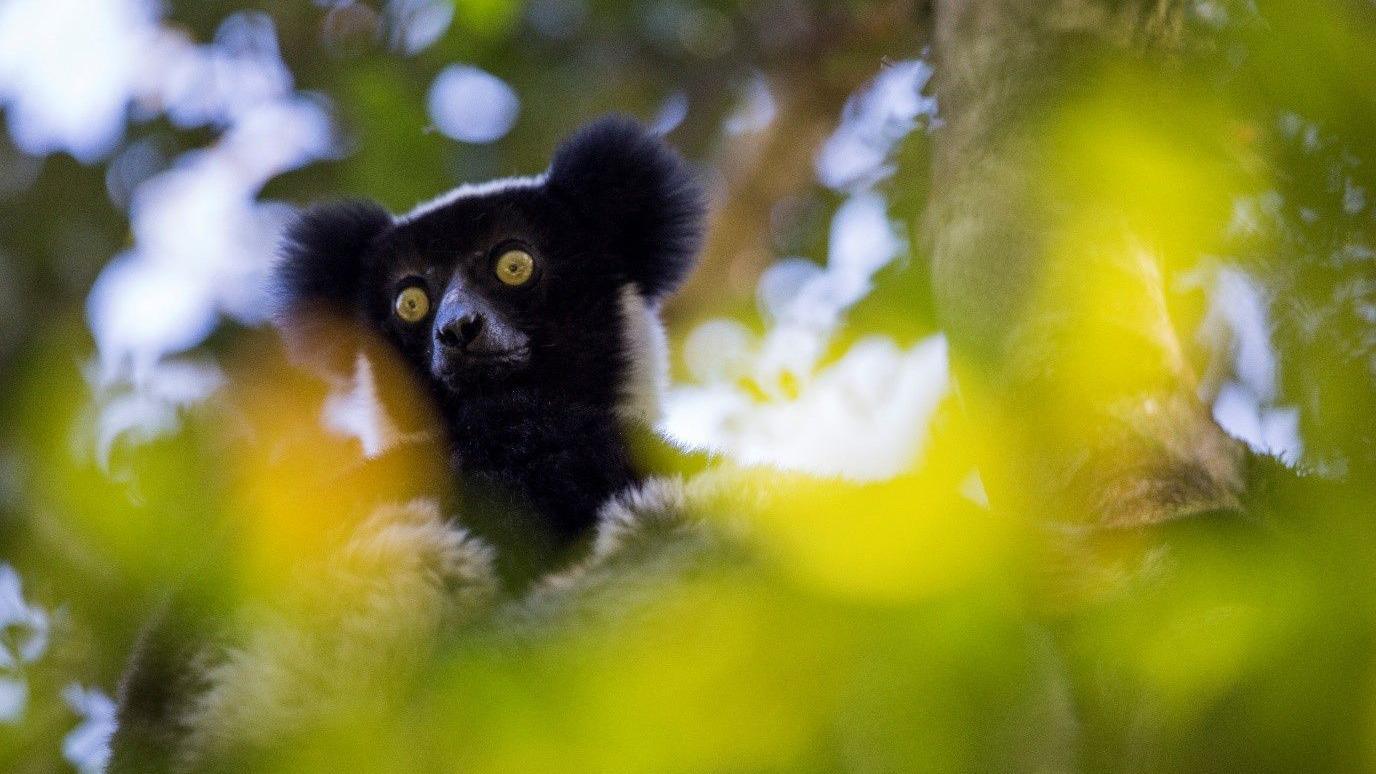'Singing lemurs demonstrate origin of human music'

The lemurs which were studied use rhythmic vocalisations like alarm calls to alert family members of predators, Dr Chiara De Gregorio said
- Published
A study of Madagascan lemurs could give a greater insight into how humans evolved to create music.
Co-author Dr Chiara De Gregorio, from the University of Warwick, said the indris lemurs communicate with song in a similar way to birds and humans.
They also use rhythmic vocalisations like alarm calls to alert family members of predators, he said.
The report suggests the basis of song could have developed early in human evolution, starting with those alarm calls.
The indris, known as "singing lemurs" live in small family groups in the Madagascan rainforest and communicate using songs.
They were observed to sing when they lose sight of each other in the dense forests, in the early morning to advertise their presence as a family group and to threaten other family groups.
These singing lemurs are saying good morning to members of their group
Researchers, who included scientists from the University of Turin, have been using data gathered over the past 15 years.
They found the lemur calls have a steady beat, known as isochrony, showing similarity with music.
The indris have "the highest number of vocal rhythms shared with the human musical repertoire – surpassing songbirds and other mammals", Dr De Gregorio said.
Dr Daria Valente, from the University of Turin, added: “The findings highlight the evolutionary roots of musical rhythm, demonstrating that the foundational elements of human music can be traced back to early primate communication systems.”
Their study was published in journal Annals of the New York Academy of Sciences.
Follow BBC Coventry & Warwickshire on Facebook, external, X, external and Instagram, external. Send your story ideas to: newsonline.westmidlands@bbc.co.uk, external